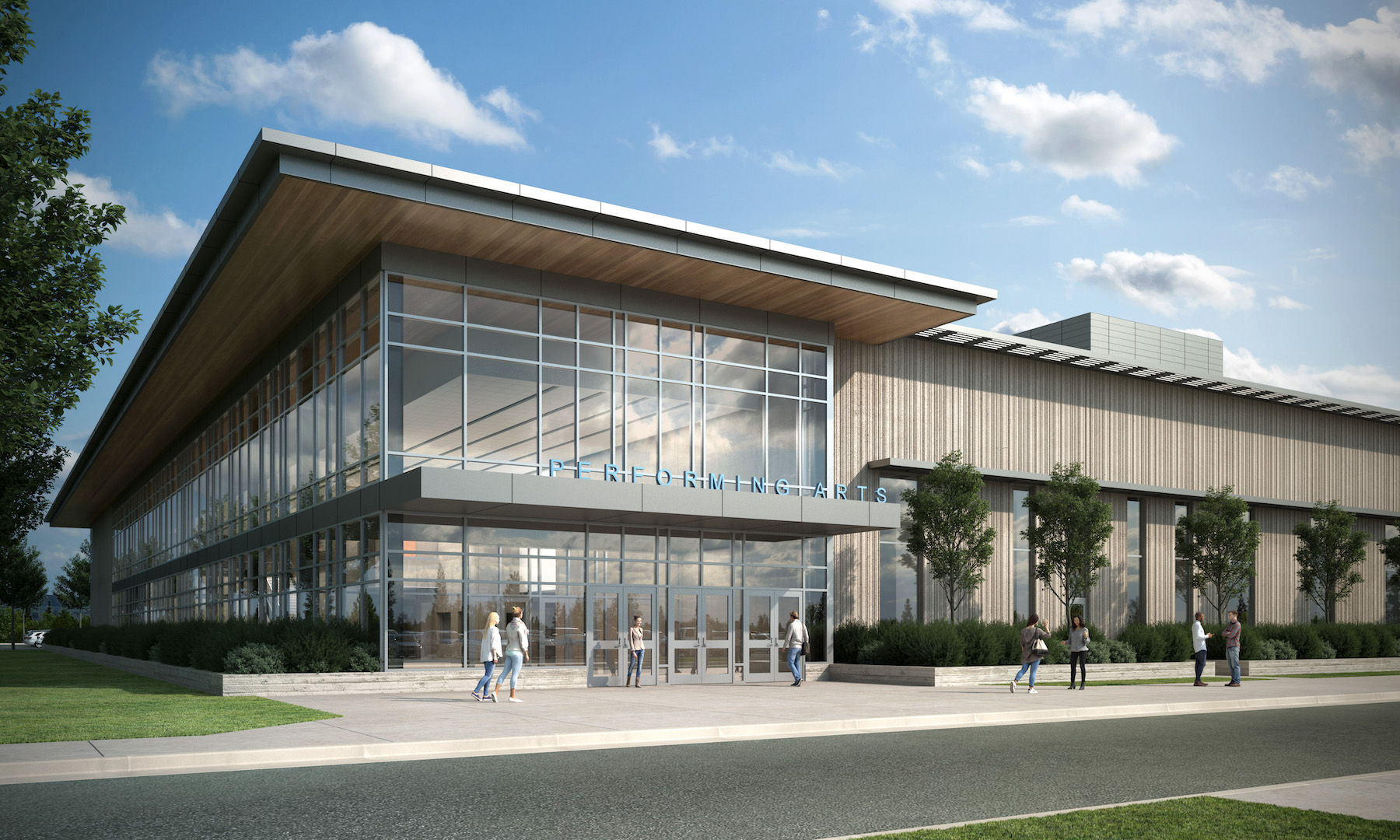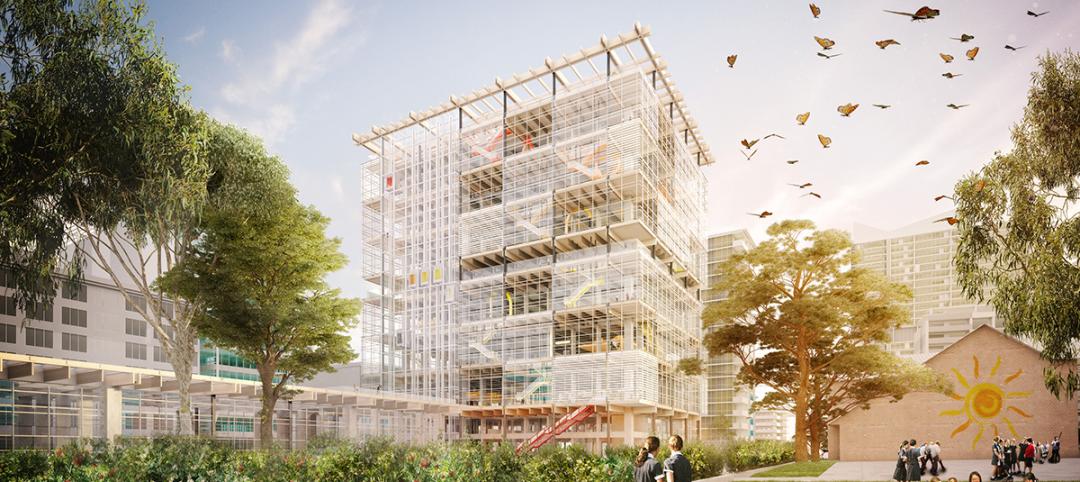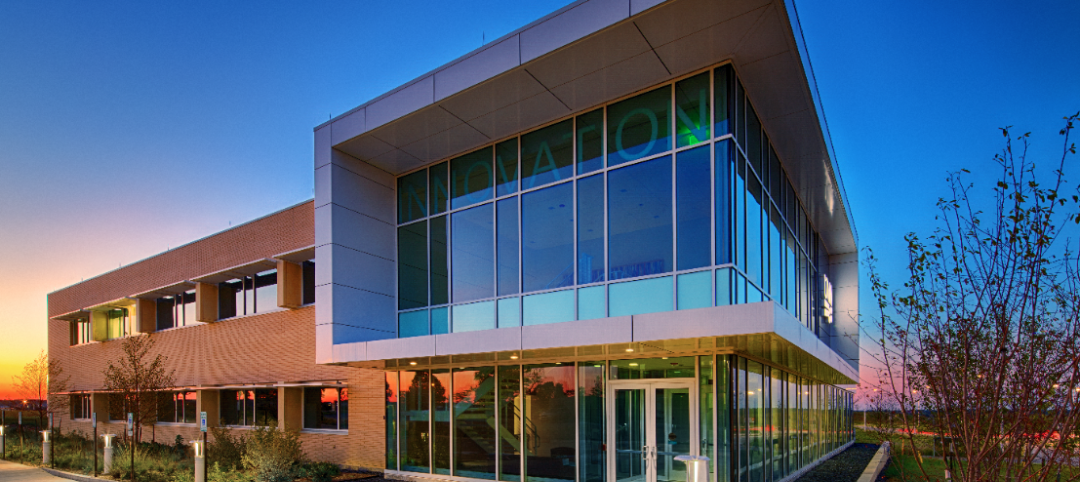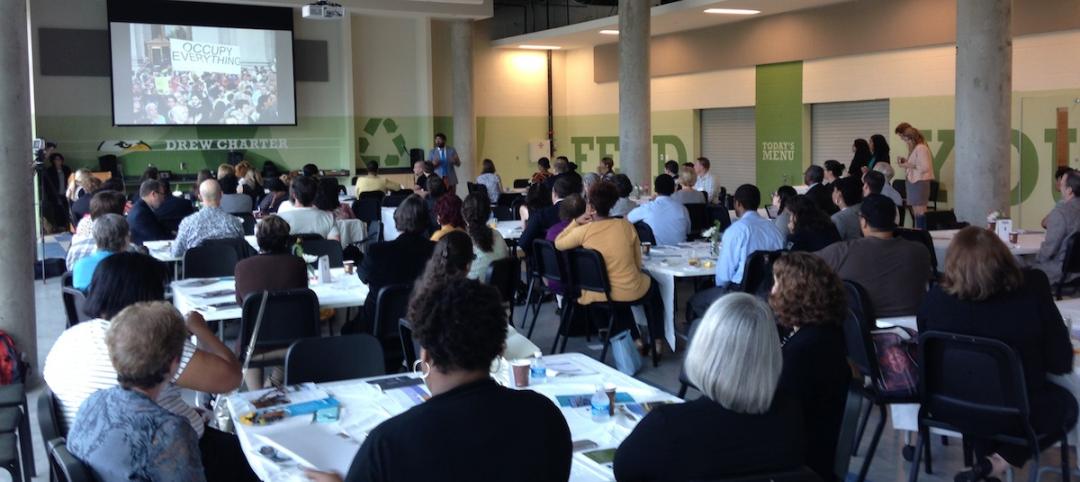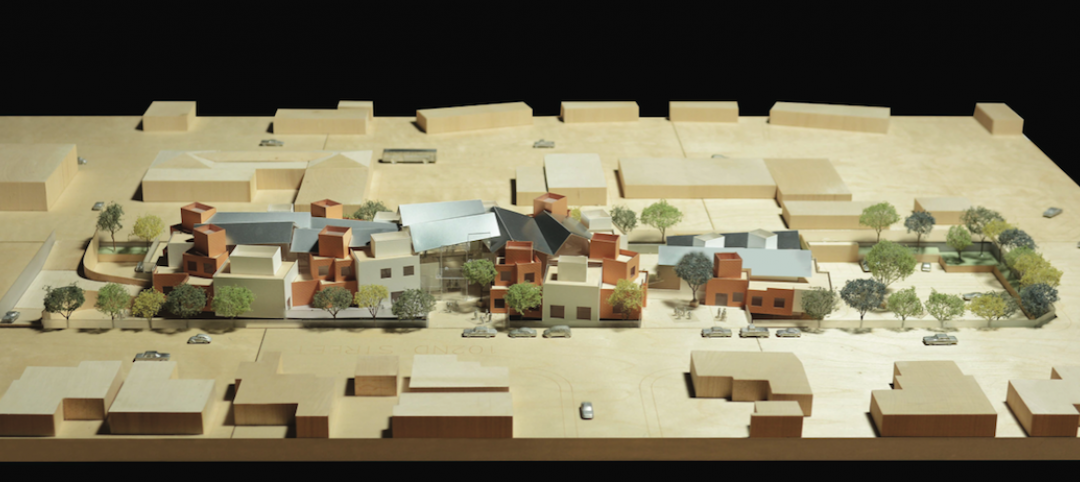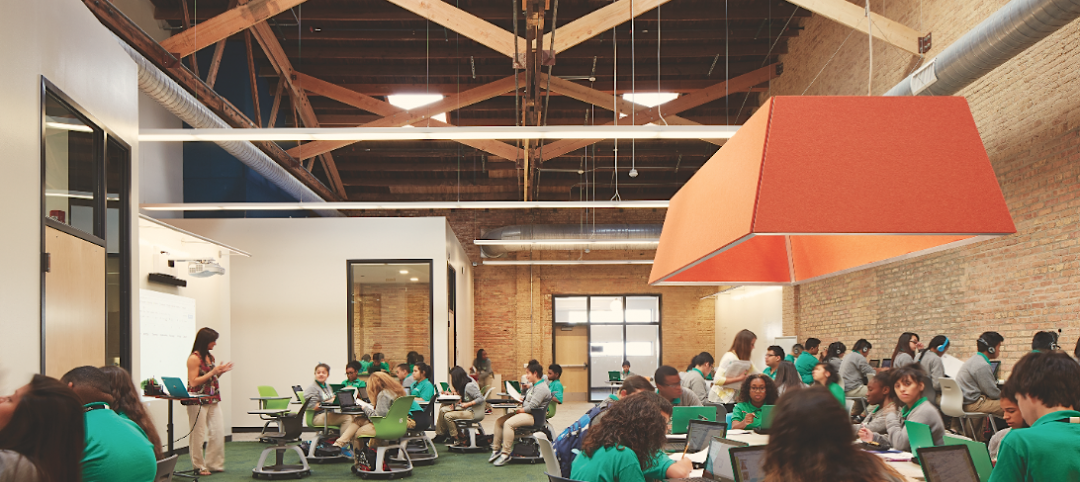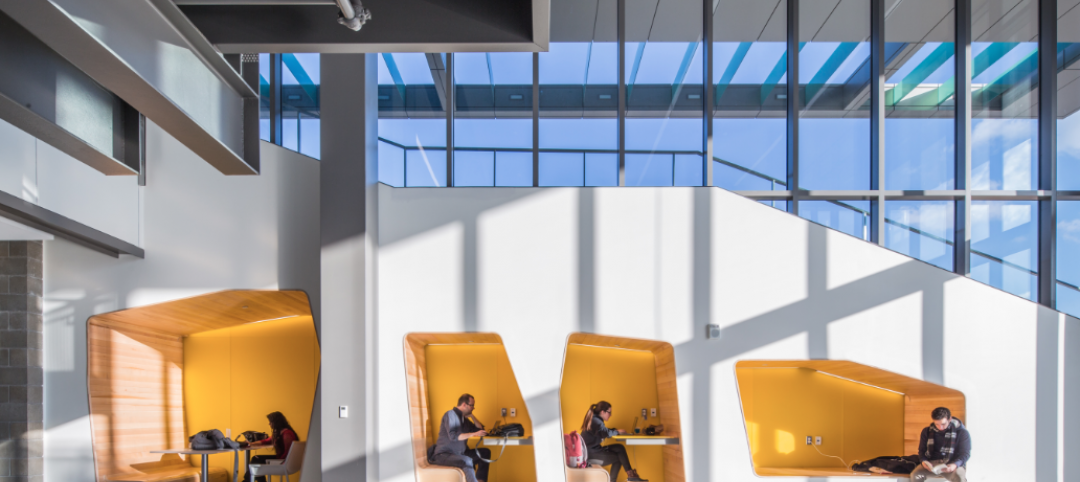Granite School District in Utah’s Salt Lake Valley has more than 60,000 students, making it one of the nation’s largest. In 2017, the District approved a $238 million bond that would fund the construction and renovation of 31 schools over a 10-year period.
Skyline High School and Cyprus High School were among those that would be replaced with modern buildings. Just how modern, though, was a point of debate between the District and the two firms hired to design the new construction, according to the lead architect on these projects.
First, some history about Skyline High School, located in Millcreek, Utah: Its current building opened in 1962, and it serves 2,156 students. That original is being replaced by a 427,000-sf school whose capacity will be between 2,200 and 2,300 students. It will have 51 classrooms, 13 labs, 11 specialized labs, abundant collaborative spaces, and six special-education resource teams. So far, the new campus’ pool, gym, and sports fields are completed. The academic building will be move-in ready this summer, at which point demolition on the old school will commence. After that, the new school’s auditorium and fine-arts center will be built, along with bus routes and parking areas. The whole project is scheduled for completion by December 2026.
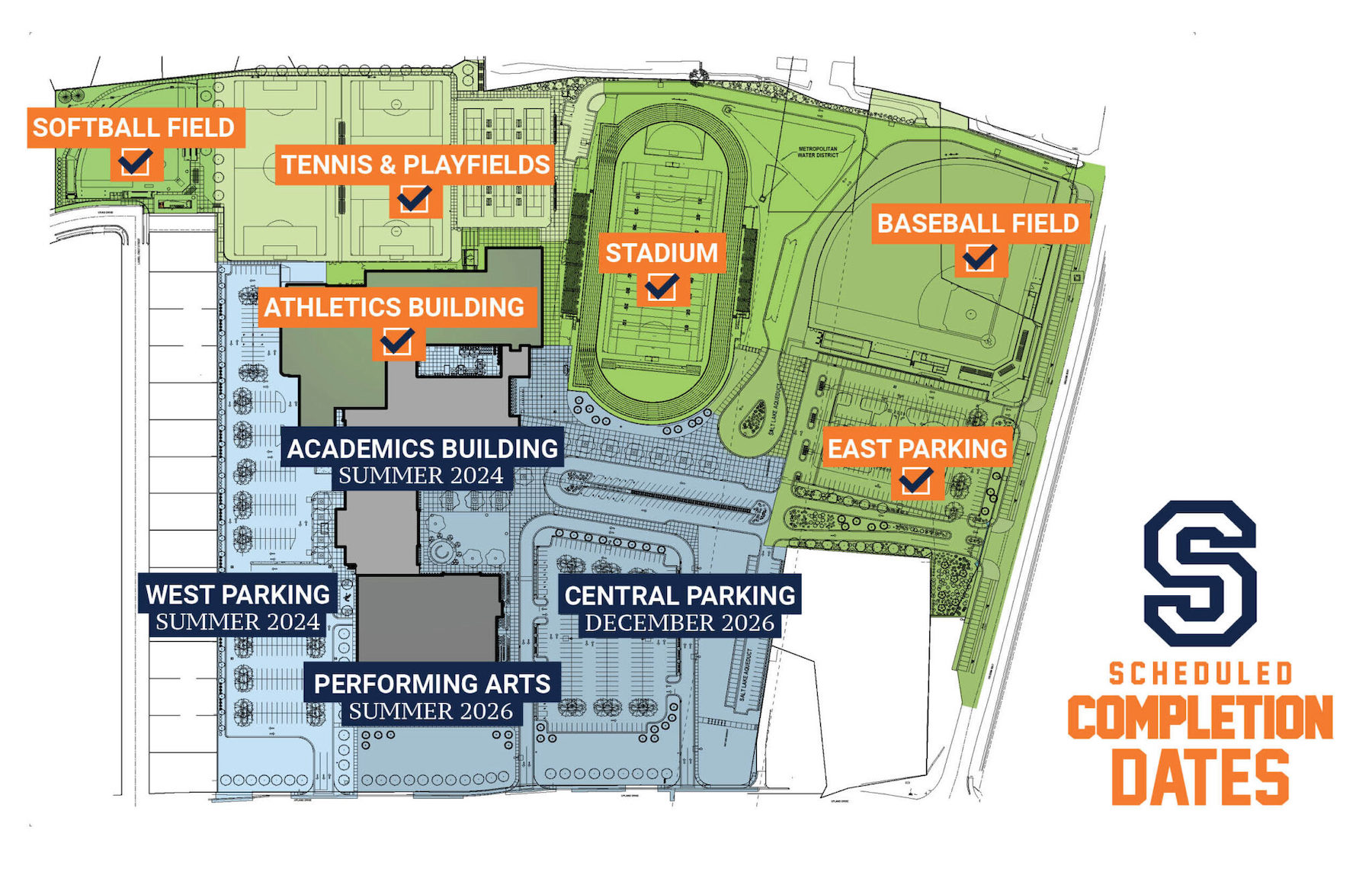
Back to the drawing board
Granite School District hired Fanning Howey to design the new Skyline High School in August 2017. Michael Hall, the firm’s Senior Project Executive and Education Planner, says that the District insisted, for accountability reasons, that Fanning Howey and Naylor Wentworth Lund, another design firm hired for this project, work under a joint venture agreement. (The joint venture is called Elevate.)
But when the firms presented their renderings, the District “reacted negatively,” recalls Hall. He believes that the community thought the design––which emphasized glass exterior walls throughout––strayed too far from a nostalgic ideal. “It wasn’t what they remembered the school had been,” he says. So the two firms restarted from scratch in 2019, and while glass is still prominent in the revised renderings’ interior and exterior design, “it wasn’t the vision we started with.”
Hall, who is based in Ohio, says he does a Zoom call every two weeks with his team, “and the first thing I ask is ‘is everyone happy?’”
Ironically, the District and community signed off on the design team’s renderings for the new 508,000-sf Cyprus High School, located in Magna, Utah, without much pushback. The Cyprus project is scheduled for completion in 2025.
Embracing space flexibility
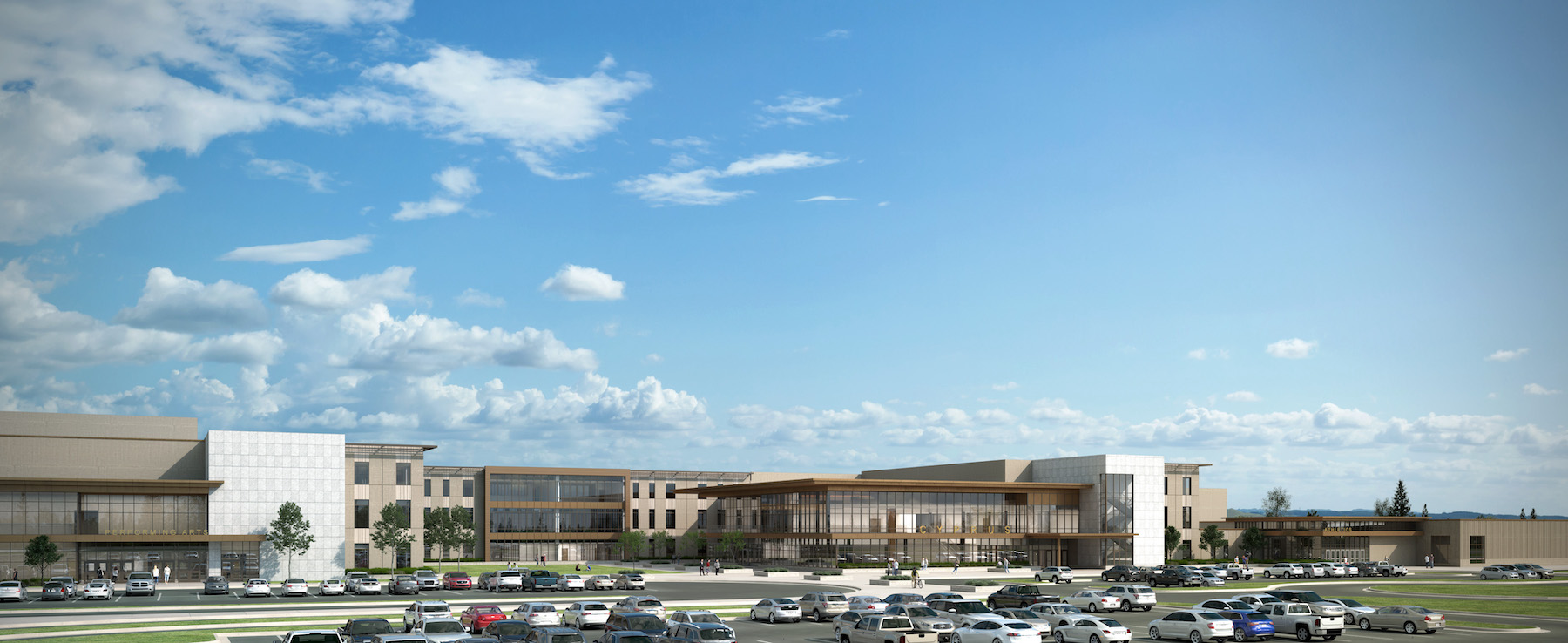
The $168 million Cyprus project, built on what had been an empty field with a 40- to 50-ft slope, required $4 million in soil compaction to support the new construction. The $174 million Skyline campus is more tightly configured, says Hall.
Another difference is how each project is being delivered. The old schools have been kept open during construction. Hughes General Contractors is building Skyline as its Construction Manager, whereas Westland Construction is building Cyprus as a General Contractor. To keep the design team in the loop, Westland has been sending Hall drone imagery of Cyprus’ progress every Monday, which prompted Hughes to send drone pictures of Skyline regularly, too.
What binds these two projects is their embrace of collaboration and design flexibility. At a time when some school districts and developers “still want egg crates” for classroom design, Hall lauds the Granite School District for devoting up to 900 sf for each of the numerous collaborative spaces included in Skyline and Cyprus. Glass walls that surround these spaces not only let more natural light into the adjacent classrooms, but provide safety and security with “adult visual control” of each room.
Skyline’s athletic buildings, which were completed in 2021, at the height of the COVID pandemic, include disinfecting lighting whose luminaires with 405-mm technology kill harmful airborne viruses and bacteria automatically and continuously.
Despite some of the anomalies and challenges these projects presented, Hall says he’s “excited” about how the schools will look. For Hall, who has been semiretired since 2018, Skyline and Cyprus will also be his “swan songs. When these are done, I’m done.”
Related Stories
K-12 Schools | Feb 4, 2016
Grimshaw and BVN design 14-story public school in Australia
The design of the high-rise is based on the template of Schools-within-Schools (SWIS), a system that de-emphasizes age groups.
| Jan 14, 2016
How to succeed with EIFS: exterior insulation and finish systems
This AIA CES Discovery course discusses the six elements of an EIFS wall assembly; common EIFS failures and how to prevent them; and EIFS and sustainability.
Giants 400 | Sep 30, 2015
SCIENCE + TECHNOLOGY SECTOR GIANTS: HDR, Jensen Hughes, Skanska top S+T firm rankings
BD+C's rankings of the nation's largest S+T sector design and construction firms, as reported in the 2015 Giants 300 Report.
University Buildings | Sep 21, 2015
6 lessons in campus planning
For campus planning, focus typically falls on repairing the bricks and mortar without consideration of program priorities. Gensler's Pamela Delphenich offers helpful tips and advice.
Designers | Sep 21, 2015
Can STEAM power the disruptive change needed in education?
Companies need entrepreneurial and creative workers that possess critical thinking skills that allow them to function in collaborative teams. STEAM (science, technology, engineering, arts, and mathematics) education might be the solution.
Education Facilities | Sep 14, 2015
Gehry unveils plan for Children's Institute, Inc. campus in LA
The new facility, which will have rooms for counseling, afterschool activities, and youth programs, will allow CII to expand its services to 5,000 local children and families.
School Construction | Sep 11, 2015
California Legislature expands design-build for schools
Also okays design-build for public works projects over $1 million
Mixed-Use | Aug 26, 2015
Innovation districts + tech clusters: How the ‘open innovation’ era is revitalizing urban cores
In the race for highly coveted tech companies and startups, cities, institutions, and developers are teaming to form innovation hot pockets.
Giants 400 | Aug 7, 2015
K-12 SCHOOL SECTOR GIANTS: To succeed, school design must replicate real-world environments
Whether new or reconstructed, schools must meet new demands that emanate from the real world and rapidly adapt to different instructional and learning modes, according to BD+C's 2015 Giants 300 report.
Giants 400 | Aug 7, 2015
UNIVERSITY SECTOR GIANTS: Collaboration, creativity, technology—hallmarks of today’s campus facilities
At a time when competition for the cream of the student/faculty crop is intensifying, colleges and universities must recognize that students and parents are coming to expect an education environment that foments collaboration, according to BD+C's 2015 Giants 300 report.


